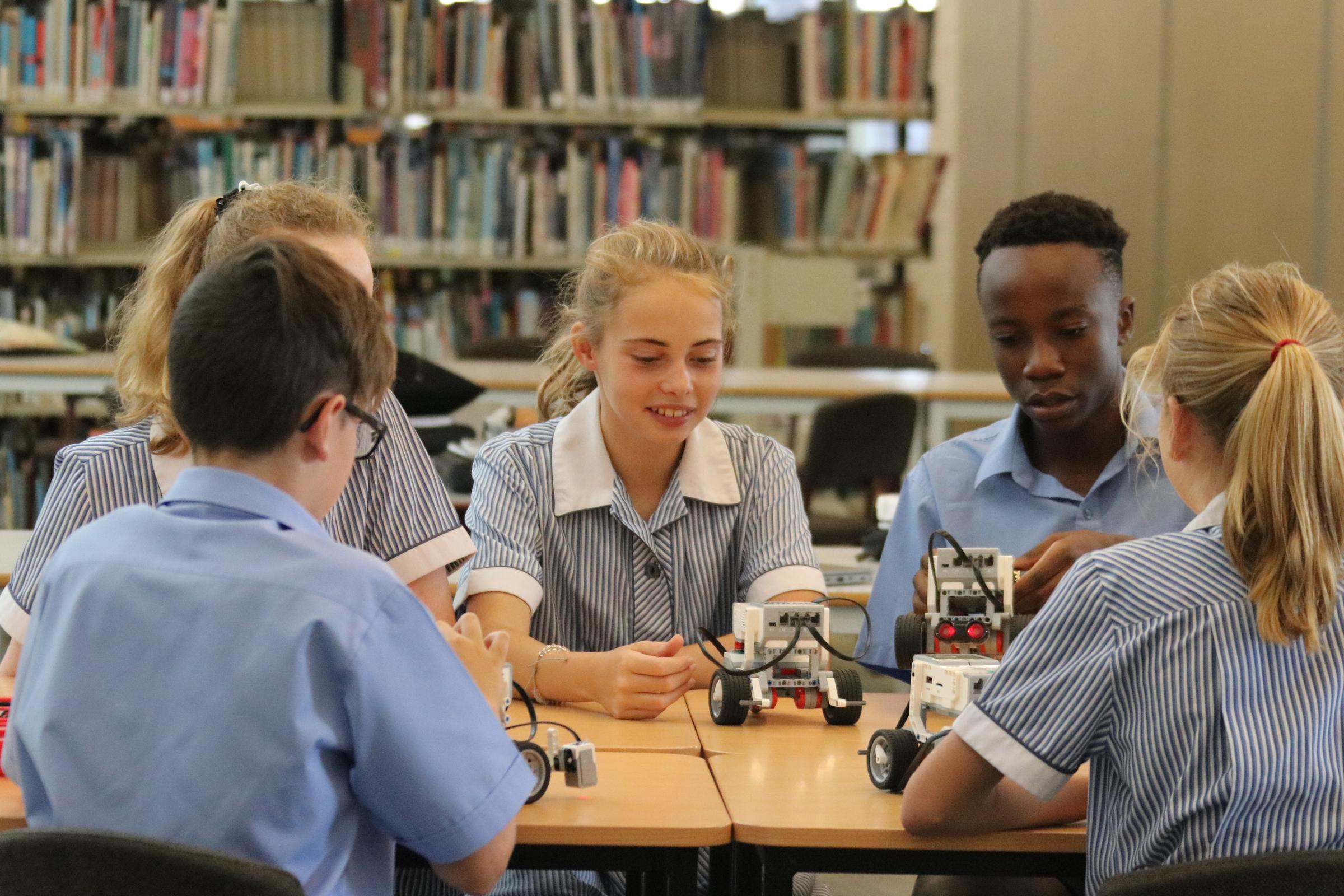Middle Years

Do we value cooperation and is it important?
What does cooperation look like?
This week our Year 7 students participated in their Initiatives Day. They were given three main tasks for the day, and all the tasks required a high degree of group cooperation to allow the House groups to succeed. Mr Cook, Mr Hawthorne, Mrs Silva and I assisted the groups and ‘coached’ them through the tasks. The Year 7 students shone with flying colours and exceeded our expectations. I thought I would focus on cooperation skills in this week’s newsletter, and it is good to reflect on the benefits of cooperation. Here is a list of ways we can cooperate; we need to model these both at school and home for students. We expect our students to be cooperative.
People who are working as a team and cooperating with each other:
- listen to each other without interrupting
- encourage everyone to join in
- are willing to hear and accept the ideas of others
- are willing to change roles in the group, eg. may be a leader sometimes and a follower at other times
- recognise the skills and strengths of others
- discuss problems calmly
- show respect for each other
- take responsibility for their part of the task
- are willing to work towards the success of the group rather than their own individual success
How to be a cooperative person
People who cooperate with each other have interesting and busy lives, get on well with others and are valued members of the community.
Why?
- They are good listeners.
- They use good manners.
- They are ready to sort out differences and compromise so that everyone gets something of what they want - a 'win/win' result.
- They take responsibility for their actions.
- They keep promises.
- They always play fair and follow the rules.
- They don't cheat or gossip.
- They help others.
- They encourage others to try hard.
- They get involved in teams and the SRC.
- They happily do whatever task is asked of them by parents and teachers.
- They share.
- They take turns even when it is something they don't really want to do - like chores at home.
- They 'give it a go' for the good of others in the team.
- They don't bully others into doing what they want.
- They make others feel needed.
- They don't leave others out.
- They don't try to take all the credit for a shared task.
- They keep trying.
Website: http://www.cyh.com/HealthTopics/HealthTopicDetailsKids.aspx?p=335&np=286&id=2962
This week we have been interviewing for the myPEC House Captain positions. The interviews are informal way of getting to know our future captains. We plan to announce the myPEC House Captains next week. Thank you to all Year 8 students who applied, and I would like to reinforce that “you don’t need a badge to lead”.
Julia Winter Cooke
Head of Middle Years
